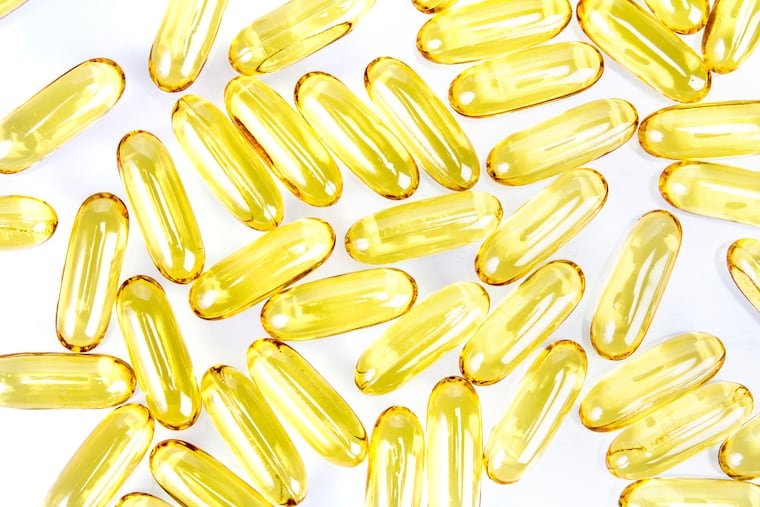New study on supplemental vitamins proves they’re useless and a waste of money
A recently published study has determined that the use of supplemental vitamins and minerals does very little, if anything, to prevent cardiovascular disease, heart attack, stroke, or death from any cause, and in some cases may do more harm than good.

Yet again, a recently published study has determined that the use of supplemental vitamins and minerals does very little, if anything, to prevent cardiovascular disease, heart attack, stroke, or death from any cause, and in some cases may do more harm than good.
Published this month in the Journal of the American College of Cardiology, researchers from a network of universities throughout Canada compiled data from a host of studies performed over the last five years in an effort to update the findings originally published by the U.S. Preventive Services Task Force in 2013. The authors focused mainly on cardiovascular diseases and concluded that there was no benefit from taking multivitamins, including vitamins C and D, beta-carotene, calcium, and selenium, and in fact, there may be harm from taking supplemental niacin (vitamin B3).
The only positive finding was the reduction of stroke and total cardiovascular disease by taking folic acid (vitamin B9) but even this finding was suspect because it was heavily influenced by a large study in China, a country that, unlike the U.S., does not regularly fortify foods with folic acid. Furthermore, the folic acid effect was so small that the researchers determined that 111 people would have to take supplemental folic acid to prevent one case of stroke, and in the end, it didn't influence the rate of death from any cause.
These findings confirm what doctors have known for years: that for most people, taking extra vitamins, minerals, or other supplements is useless and a waste of money. But, despite all evidence to the contrary, the vitamin and supplement industry continues to thrive as consumers seek to be healthier by making up for undetected deficiencies or even believing that if a little is good, then a lot must be better. The National Health and Nutrition Examination Survey data showed that up to 52 percent of the U.S. population took supplements between 1999 and 2012. According to the National Institutes of Health, an estimated $36.7 billion was spent on dietary supplements in the U.S. in 2014.
Unlike with prescription medications and certain over-the-counter drugs, federal law does not require the U.S. Food and Drug Administration to carefully regulate vitamins and supplements to make sure that they are safe and that their health claims are accurate. Thus, it is up to consumers to decide for themselves whether or not to invest in these products. But swimming against the strong current of marketing by the vitamin and supplement industries is a Herculean task.
Of course, vitamins are essential for good health, but nearly all Americans get more than they need with a healthy, balanced diet consisting mostly of a variety of plant-based foods. There are, however, several types of people who might benefit from vitamin supplementation. For example, vegans may need to supplement certain vitamins and minerals, depending on their specific diet, and women who are pregnant or trying to conceive should add folic acid supplements to their diet because it is associated with a decreased risk of birth defects of the brain and spinal cord. There are also many types of unique medical conditions that require vitamin or mineral supplementation, but their administration should be overseen by a personal healthcare provider.
And remember, all vitamins and supplements carry the potential to cause harm when taken in excess. Too much vitamin B6 has been associated with nerve damage, and even modestly additional amounts of vitamin C or vitamin D in some people can predispose the formation of kidney stones. (I know this first hand: When I was an overzealous medical student in the 1980s, my taking extra daily doses of vitamin C gave me my first bout of kidney stones.)
You should always tell your health-care providers about vitamins or supplements you are taking because these substances can interact with your other medications and cause harm. For example, the use of vitamin A or vitamin E supplements while taking blood thinners may increase the risk of bleeding. And some supplements, such as garlic, ginkgo biloba, ginseng, and vitamin E, may increase the risk of excess bleeding during and after surgery.
So, think twice the next time you are tempted to buy a vitamin, mineral, or other type of supplement. Most likely, your body and your wallet will be better off without it.
Ronald S. Litman, D.O., M.L., is the medical director of the Institute for Safe Medication Practices, based in Horsham, and a pediatric anesthesiologist at the Children's Hospital of Philadelphia. The views and opinions expressed in this article belong solely to the author, and not necessarily to the author's employers or their affiliates. Follow him on Twitter at @DrRonLitman.